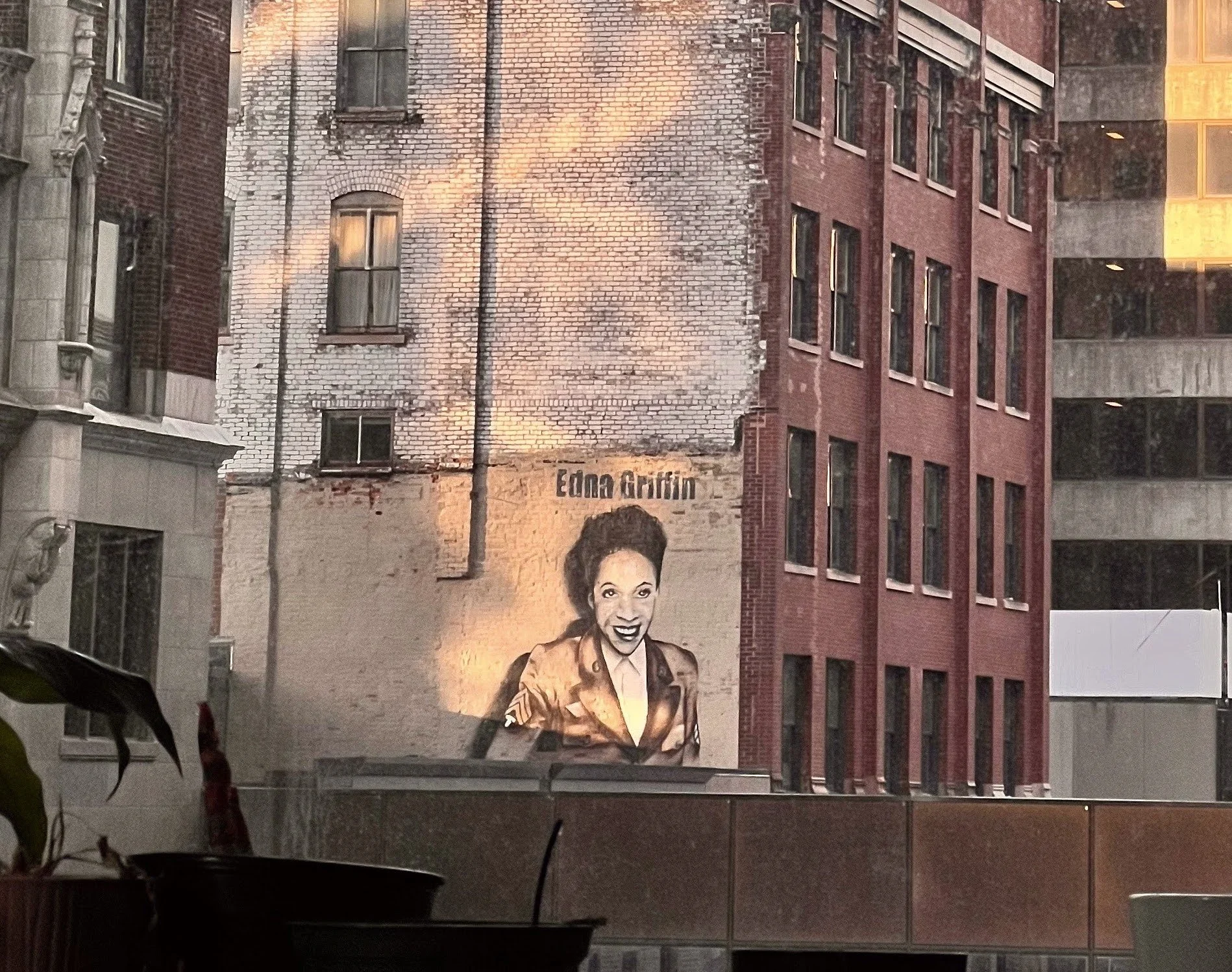Hidden History : Edna Griffin
An Iowa Civil Rights Legend REmembered
Foreword
With February being Black History Month, I wanted to visit the story of Edna Griffin who sometimes referred to as “The Rosa Parks of Iowa”. She was, among many other things, a local leader in the civil rights movement. To some, I believe the label of Hidden History here might be puzzling and I’ll elaborate. I’m ashamed to admit that when I first moved to Des Moines I had never heard the name “Edna Griffin”, despite having lived in Iowa for 15 years prior. I learned of her from a plaque installed at the corner of 7th and Locust downtown on a building which now bears her name. Like many young Americans in school, I learned about national figures in the movement like Dr. Martin Luther King Jr, so it baffles me that I missed some of the stories of the people who literally made history in the neighborhood I came to live in.
The summer of 1948
This story begins in a time when downtown was a vastly different place. It was before 801 Grand, the Ruan Center, and even the skywalks. Downtown Des Moines had not yet emptied of its core retail district, and it functioned as the true business center of the city.
It was July 7th, 1948.
It was mid-summer, when the humidity begins to rise and the corn at the edges of our city crests just above our knees. I can picture Locust Street, cast in the shadow of the Equitable Building, undulating with the traffic of folks going about their daily business. It must’ve been hot.
Edna Griffin, John Bibbs, Leonard Hudson and Edna’s infant daughter Phyllis were among that street traffic when they ducked into the Katz Drug Store to order ice cream just before 4pm. I’ve read the story told a number of different ways, but in all of them Griffin and company were denied service by the lunch counter’s manager because they were black.
They were told it was against policy to serve them, and that they needed to leave.
Seeking Consequences & Change
The Iowa legislature had passed a law in 1884 that prohibited discrimination in public accommodations like restaurants and hotels, but had been lukewarm about enforcing this law. Therefore, Griffin responded with legal help from the NAACP. There were criminal charges against the business owner and civil charges against the business. She also organized protests like sit ins and pickets that put pressure on businesses like Katz to change their policies. Ultimately, she won. Maurice Katz was fined $50 (which would be about $650 today), and the court also found that the drug store had violated the civil rights of Griffin and her cohorts that day. She was awarded only $1 (around $12 in 2024) in damages. Griffin’s victory would signal a change in the state’s attitude on enforcing the 1884 Civil Rights code, though efforts against racial discrimination persist even today.
That case wasn’t the end of her work in civil rights, however. She went on to found the Des Moines chapter of Congress for Racial Equity (CORE), she organized a march from Ames to Des Moines to mourn the loss of 4 lives in the Birmingham 16th Street Baptist Church Bombing, and she and her husband sent 40 Iowans to the famed 1963 March on Washington.
The building that housed Katz Drug Store is the very same one that bears the plaque that I mentioned above, it was renamed “The Edna Griffin Building” in 1998 in her honor.
Dr. Negus Rudison-Imhotep, Chair of The Des Moines Civil and Human Rights Commission had great points about Griffin’s legacy in this interview by We Are Iowa Local 5 News.
"Just putting her name up on a building is nice, but she needs to be in texts of the history books on the history of the state of Iowa, because she was a bonafide history maker, not just for the state, but for the entire nation. Because she stood up for what was right," Rudison-Imhotep said.
Her historic legacy was monumental, but it didn't put an end to discrimination in Des Moines, or even at the drug store itself.
"You can write a law until you get cross-eyed, but you can't change the hearts of people," Rudison-Imhotep said.
Though Iowa still has work to do, Rudison-Imhotep emphasized that Griffin's courage is something everyone needs to nurture and act on.
"If you get that clarion call to stand up and for particular calls, and you feel that it's absolutely necessary, don't hesitate," he said. "Do what you got to do. Because your life or your thoughts could make a change in society."
If you are taking a stroll on the skywalk or walking past the Edna Griffin Building, take a moment to read the plaque or look her mural located on the east facing side of the building. If you are interested in learning more about Edna Griffin, take a look at some more resources below.


